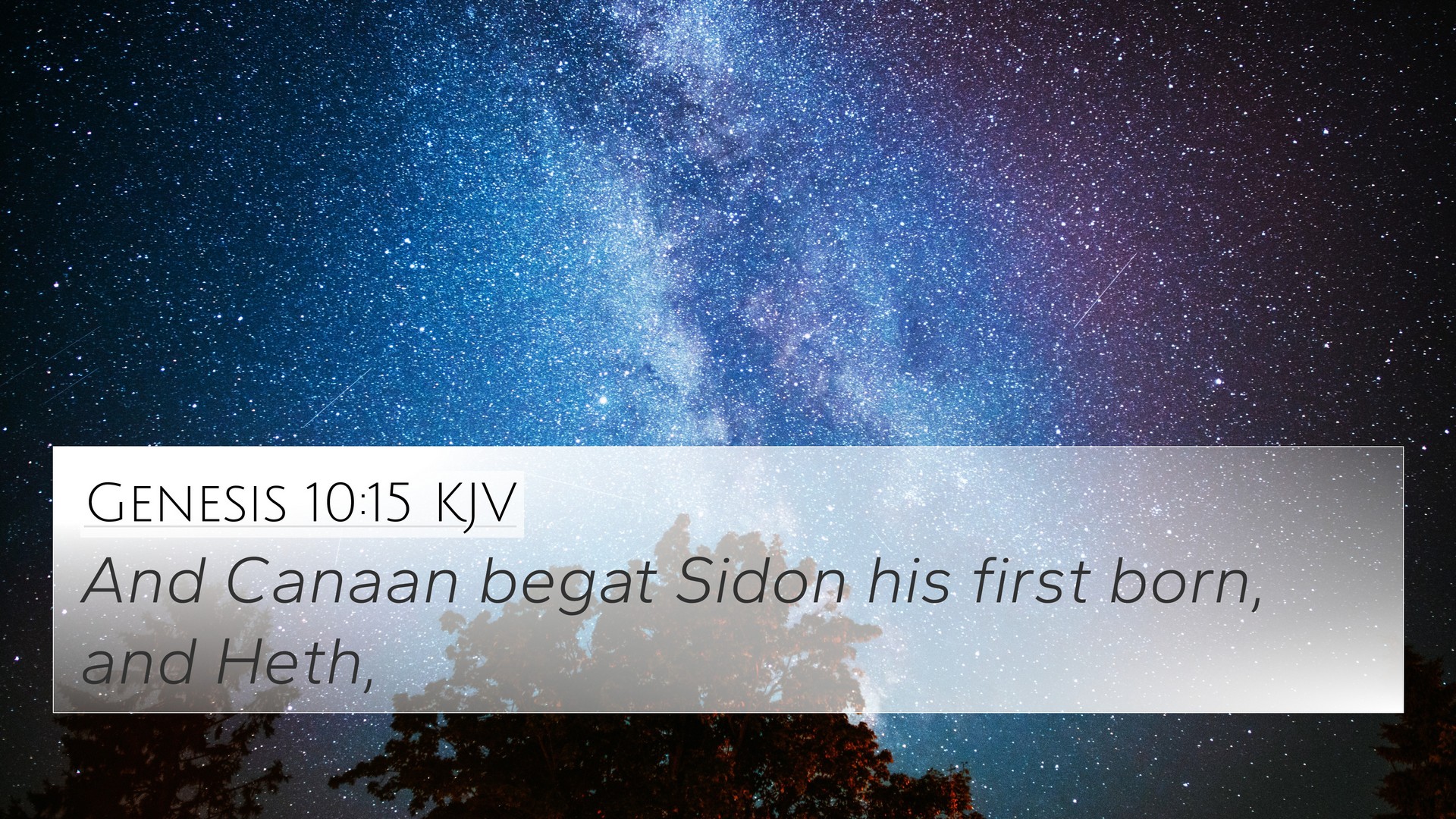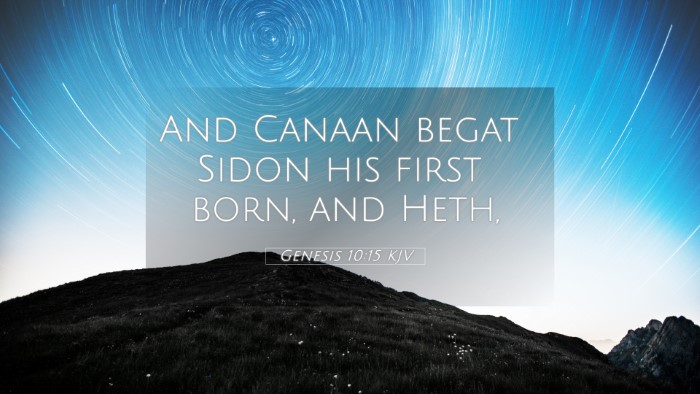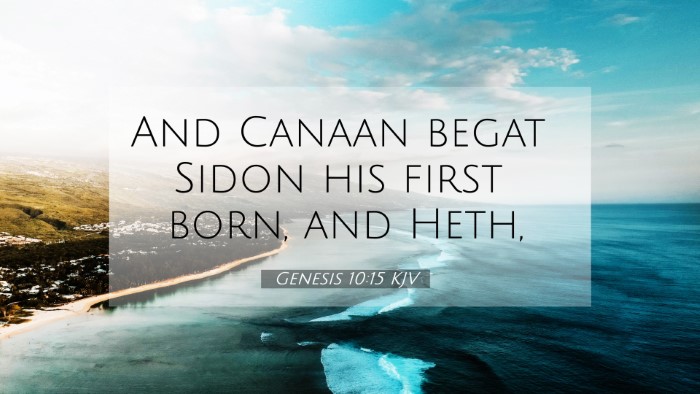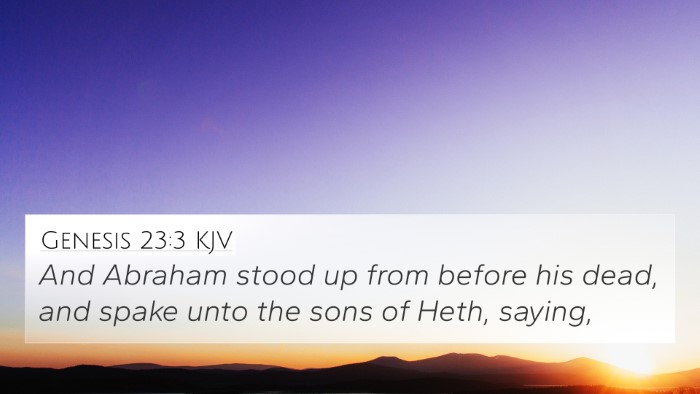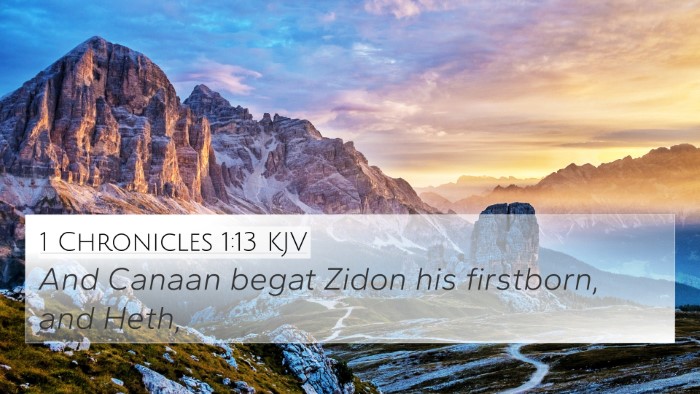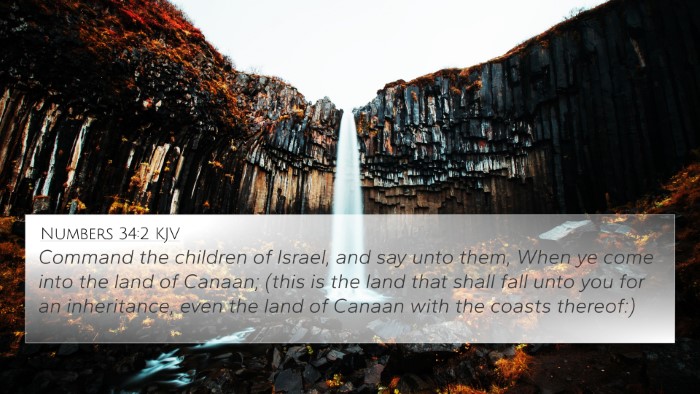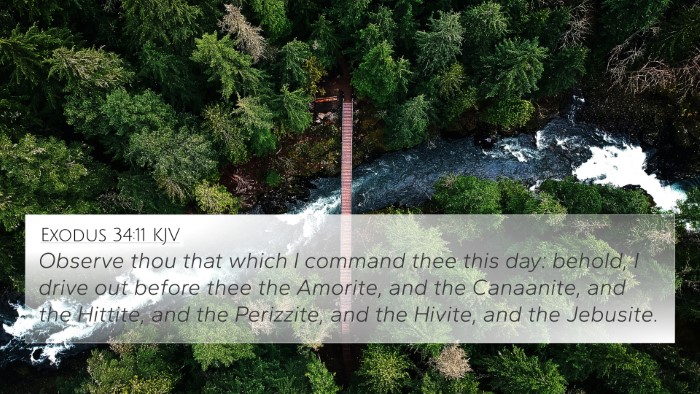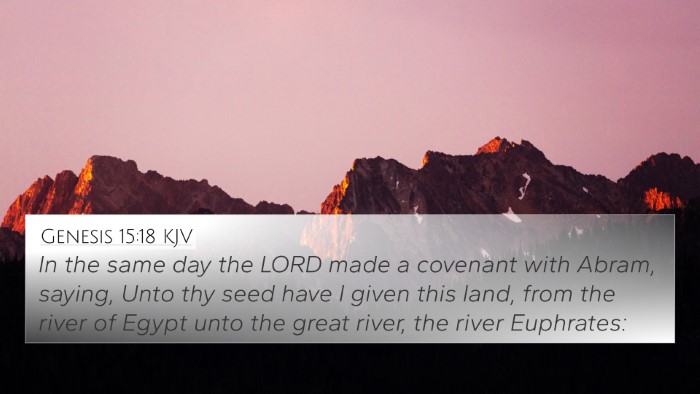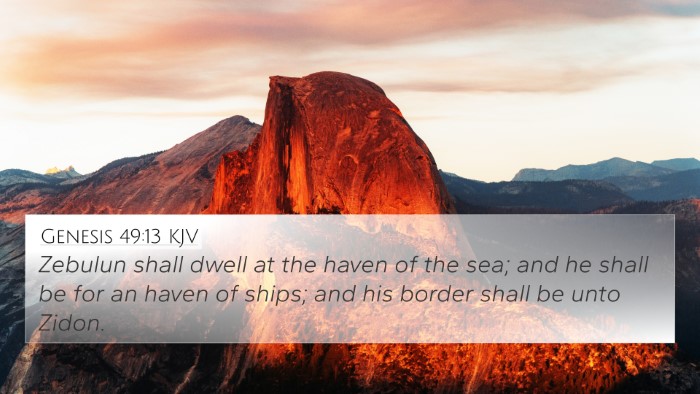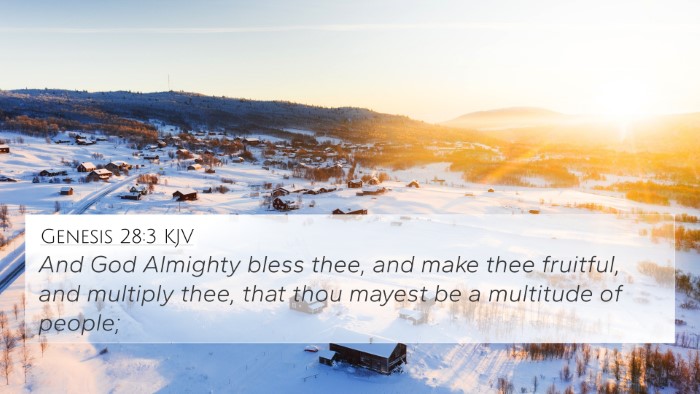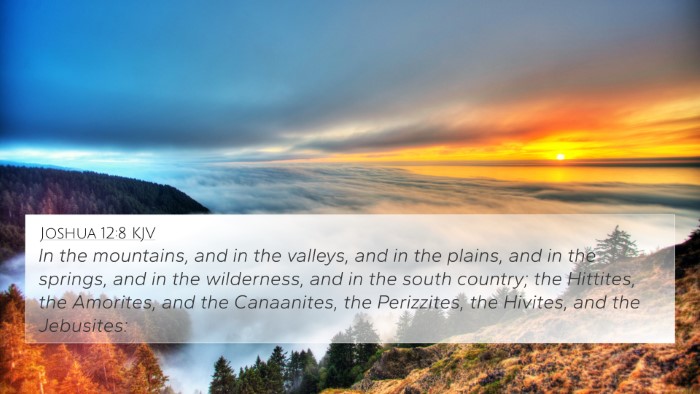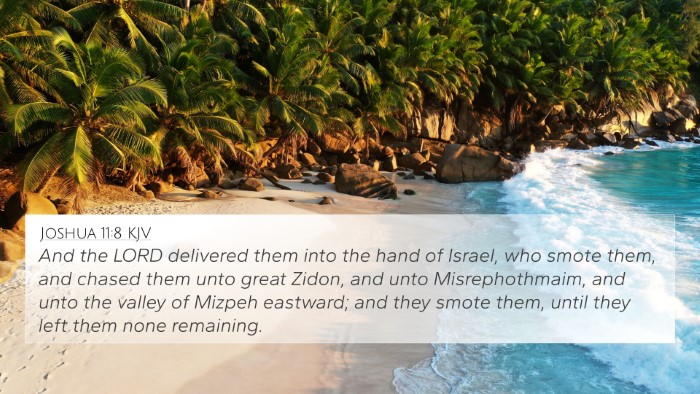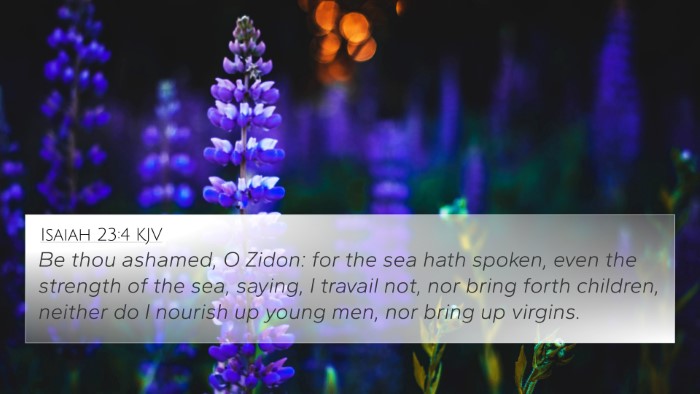Understanding Genesis 10:15
Genesis 10:15 states:
"And Canaan begat Sidon his firstborn, and Heth."
This verse belongs to the Table of Nations, which outlines the descendants of Noah’s sons after the Flood. The genealogies provided in Genesis serve not only as historical records but also as theological staples that underscore God’s sovereignty in the dispersion and development of nations. Below is a comprehensive analysis of its meaning and implications, drawing upon insights from public domain commentaries.
Overview of the Verse
In this brief but significant verse, Canaan, one of Noah's grandsons, is identified as a progenitor of several nations, with Sidon being his firstborn and Heth being another figure of note. The mention of these names carries weight in the biblical narrative, as the descendants of Canaan play pivotal roles in the unfolding story of Israel.
Commentary Insights
-
Matthew Henry’s Commentary:
Henry emphasizes the importance of genealogies in establishing the line of descent, linking the history of Israel back to these early figures. He notes that Canaan’s progeny is significant as they will later become the nations that oppose Israel.
-
Albert Barnes’ Notes:
Barnes highlights Sidon and Heth as important figures who founded cities and tribes, marking the beginning of the Phoenician civilization (Sidon) and the Hittites (Heth). This establishes a context for understanding Israel’s historical adversaries.
-
Adam Clarke’s Commentary:
Clarke explains that the mention of these names serves to signify the fulfillment of God’s plan through these nations. The focus on Canaan invites readers to reflect on the consequences of sin and divine judgment carried forward in the context of Noah’s blessing and curse.
Thematic Connections
Genesis 10:15 provides a springboard for several thematic explorations in Scripture:
- Divine Sovereignty: Reflects God's control over nations and history.
- Judgment and Redemption: The descendants of Canaan faced judgment, illustrating the consequences of sin.
- Covenant Relationships: Sets the stage for the future conflict and covenant blessings to Abraham’s descendants.
Bible Verse Cross-References
This verse can be cross-referenced with several other biblical passages that provide deeper insight:
- Genesis 9:25: Noah’s curse on Canaan explains future relations with Israel.
- Genesis 15:16: God’s promise to Abraham related to the iniquity of the Amorites.
- Deuteronomy 7:1: God commands Israel to destroy the nations of Canaan.
- Joshua 11:3: The Anakim and their ties to Canaan as Israel enters the Promised Land.
- 1 Chronicles 1:13-15: A parallel genealogical record confirming Canaan’s lineage.
- Ezekiel 16:3: References the origins of Jerusalem amid nations descending from Canaan.
- Luke 3:36: Traces the lineage back to Canaan, highlighting Jesus' connection to this narrative.
Using Cross-References for Deeper Study
By using tools for Bible cross-referencing, such as a Bible concordance or cross-reference guide, one can uncover a wealth of knowledge that enriches the understanding of Genesis 10:15. Here are some methods for effective cross-referencing:
- Comparative Bible Verse Analysis: Look for parallels in genealogies across the Biblical texts.
- Thematic Bible Verse Connections: Identify themes like judgment and inheritance in the context of Canaan's descendants.
- Inter-Biblical Dialogue: Explore how New Testament references expound on Old Testament genealogies.
Conclusion
In understanding Genesis 10:15, it is vital to observe how Canaan and his descendants are rooted in the broader narrative of the Bible. Their story not only informs the historical backdrop of Israel but also reflects significant theological themes regarding judgment, redemption, and divine sovereignty. Cross-referencing this verse with related biblical passages helps to illuminate these connections, ultimately enhancing one’s understanding of Scripture.
